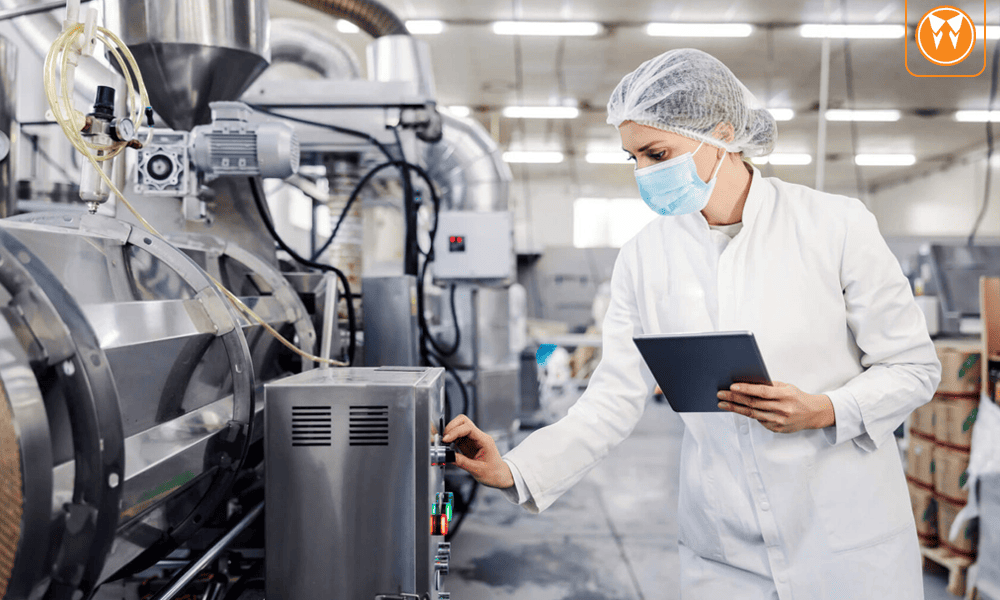The food and beverage industry is evolving faster than ever. From changing consumer preferences to the rise of new technologies, many factors are driving innovation. Companies in the sector are not just focusing on improving products but also adjusting to environmental concerns, health consciousness, and advancements in technology.
This blog will explore the five major trends shaping the future of the food and beverage industry, with a particular focus on sustainability, plant-based diets, and the role of technology in food production.
1. Sustainability: A Core Focus
Sustainability is now more than a buzzword it’s an industry imperative. As global awareness of environmental issues grows, consumers are demanding more sustainable practices from the brands they support.
Companies are introducing sustainable sourcing methods, reducing food waste, and minimizing their carbon footprints. Some food brands are exploring regenerative agriculture, which goes beyond sustainability to restore soil health and biodiversity. Additionally, there’s a push for more plant-based foods that require fewer natural resources compared to animal products.
The packaging industry has also shifted. Biodegradable, recyclable, and compostable packaging are now seen as a standard in the industry. Businesses are also exploring alternatives like edible packaging and plant-based plastics. Sustainability is not just an ethical choice—it has become a critical aspect of market competitiveness.
Examples:
- Unilever has committed to achieving net-zero emissions by 2039, including sustainable sourcing of ingredients like palm oil.
- Nestlé is shifting towards plant-based products, with a target to achieve 100% recyclable or reusable packaging by 2025.
Sustainability is now a core value, influencing product development, manufacturing, and distribution practices.
2. Rise of Plant-Based Products
Plant-based diets are no longer just a niche trend they’re becoming mainstream. As consumers become more aware of the environmental and health benefits, plant-based products are expanding beyond food into beverages.
The plant-based food market has seen rapid growth, with plant-based milk, meat substitutes, and snacks gaining popularity. These products are not just for vegetarians or vegans; they’re attracting flexitarians—people who reduce animal product consumption for health or environmental reasons.
The shift is not limited to health-conscious consumers; environmental advocates also support plant-based diets due to the significant reduction in greenhouse gas emissions and water usage.
Health Benefits: Plant-based foods are often lower in saturated fats and higher in fiber, vitamins, and minerals. This makes them attractive to consumers seeking healthier lifestyles.
Environmental Impact: Switching to plant-based alternatives helps reduce the overall environmental impact of food production. These products require fewer resources and generate less waste compared to traditional animal-based products.
As demand grows, companies are diversifying their offerings. Plant-based meats, dairy, and even seafood are now available in various markets.
3. Technology and Innovation in Food Production
Technology is revolutionizing the food and beverage industry. From artificial intelligence (AI) to robotics and automation, innovations are improving efficiency in production, processing, and distribution.
AI is now being used to predict consumer preferences, optimize supply chains, and enhance product development. Automation is reducing the reliance on human labor, which can increase output while lowering costs. Additionally, data analytics is helping manufacturers streamline operations, predict trends, and reduce waste.
Emerging technologies like 3D printing are being used to create custom food products, enabling more personalized meals and experiences. This technology allows for precise control over ingredients and shapes, opening new possibilities in food customization.
Examples:
- IBM’s Food Trust Blockchain helps track the journey of food from farm to table, ensuring transparency and reducing food fraud.
- Companies like Impossible Foods use biotechnology to replicate the taste and texture of meat without the environmental impact.
Incorporating these technologies into the food and beverage sector is not just about enhancing production but also improving the consumer experience through personalized offerings and convenience.
4. Health and Wellness: Personalized Nutrition
Consumers today are more health-conscious than ever, seeking diets that cater to their specific needs. Personalized nutrition, which tailors food choices to an individual’s genetics, health conditions, and lifestyle, is gaining traction. This trend is fueled by advancements in nutrigenomics—the study of how food affects our genes—and wearable technology that tracks health data.
Food companies are now using this data to create personalized food products and meal plans, helping consumers achieve their health goals. This shift towards customized nutrition allows people to better manage chronic conditions, optimize performance, and improve overall wellness.
Benefits:
- Personalized diets can address individual health needs more effectively, reducing the risk of diseases such as diabetes and heart disease.
- It allows for the incorporation of functional foods, which offer health benefits beyond basic nutrition, such as probiotics, antioxidants, and omega-3 fatty acids.
Example:
- DNAfit offers personalized meal plans based on genetic testing, which helps users optimize their diets for weight loss, energy, and overall health.
As consumers embrace health and wellness, personalized nutrition is set to play a significant role in the future of the food and beverage industry.
5. Eco-Friendly Packaging: Reducing Waste
As sustainability becomes a key consideration for consumers, the food and beverage industry is shifting towards eco-friendly packaging solutions. The rise of single-use plastics has led to growing environmental concerns, prompting companies to rethink their packaging materials.
In response, many brands are adopting biodegradable, recyclable, and reusable packaging. Some are even exploring edible packaging to eliminate waste altogether. Packaging that can be easily recycled or composted is becoming a priority for businesses looking to meet consumer demands for greener products.
Examples:
- Coca-Cola has committed to making all of its packaging recyclable by 2025.
- Danone aims to reduce plastic packaging and increase its use of reusable materials.
Eco-friendly packaging is no longer just about reducing waste—it’s becoming a key factor in consumers’ purchasing decisions.
The Corporate Business View
The future of the food and beverage industry is being shaped by several transformative trends. Sustainability, plant-based diets, technology, personalized nutrition, and eco-friendly packaging are not just fads but represent long-term shifts that will define the industry’s evolution. As consumer preferences continue to evolve, companies that adapt to these trends will lead the way in innovation and market growth.

